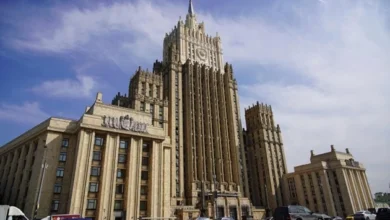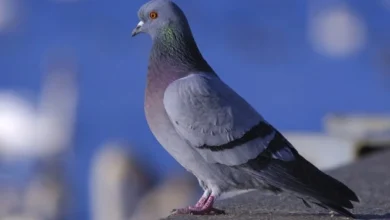Alexandra Kosteniuk, the fast chess queen who defied preconceptions
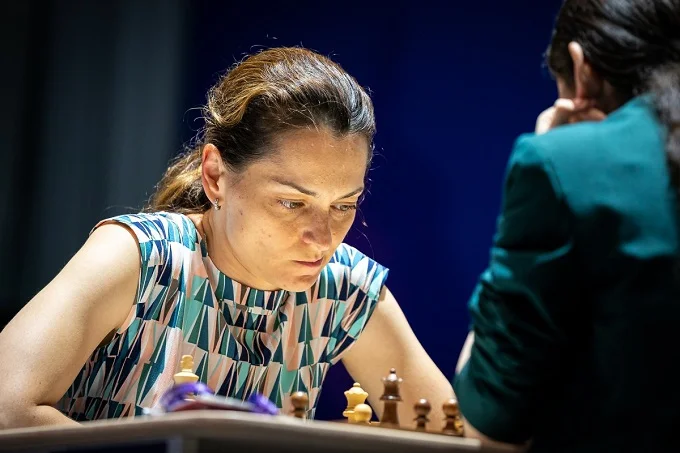
AlexandraKosteniuk’s name shined brightly around the turn of the century; after the pandemic, she returned to elite competition, winning Poland’s World Rapid Chess Championship. She was a model and influencer in the advertising industry.
Alexandra Kosteniuk, a 37-year-old Russian chess player, has contributed to her lengthy resume by being inscribed for the first time among the winners of the world championships in quick mode (games of 15 minutes per competitor). The World Championship, organized by the International Chess Federation (FIDE, after its French name), has been held at Warsaw’s Polish National Soccer Stadium since December 25. It is split into absolute (men and women) women categories. The first, with 181 competitors, was won by a 17-year-old Uzbek named Nodirbek Abdusattorov; the second, with 103 participants, was won by Kosteniuk, the new Queen.
This young Russian woman, born on April 23, 1984, in Perm on the banks of the Kama river, is one of the great stars of Russian women’s chess history; in 2008, just one year after giving birth to her only daughter, Francesca Maria, she became the 12th world champion among women, defeating Chinese Hou Yifan in the final. Previously, in 2006, she won the first World Random Chess Championship (also called Fischer-Random).
Kosteniuk is dubbed “The Chess Queen” in the gambit and castling arena, with over 225 thousand followers on her Twitter account. And, although her playing ability places her among the top ten female chess players in the world, she has spent the last few years focusing on promoting and spreading the game’s qualities rather than on high competitiveness.
Alexandra Kosteniuk, who formerly worked as an advertisement model and was delighted by the masculine attitudes when confronted with a beautiful woman, opted about a decade ago to designate herself “Ambassador of Chess.” She is a teacher, author, and organizer of the “Alexandra Kosteniuk Cup” children’s tournaments for boys and girls ages 6 to 12.
Alexandra, whom her family named Sasha, learned to play chess at the age of 5; her father, Konstantin, was in charge of polishing the rudiments of the game and decided to leave his career in the Russian army to accompany his daughter to the main chess competitions. The girl’s progress soon surpassed her father’s knowledge, so hiring the Russian master Alexei Korotyliov as a new trainer was necessary.
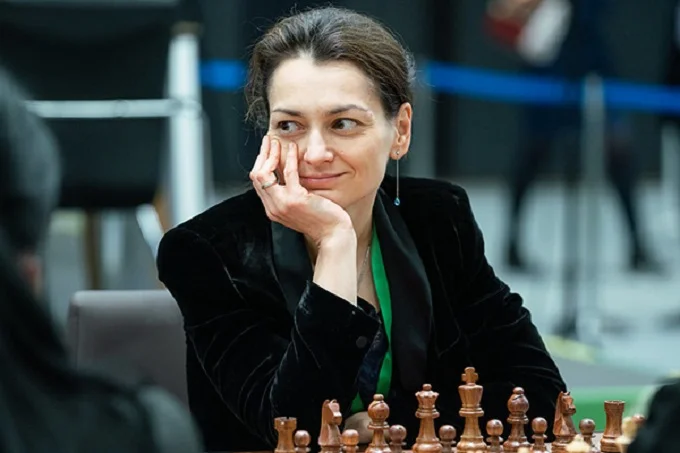
Her dedication and talent made her rank like lightning; at the age of 14, in 1998, she became the youngest female chess grandmaster in history. At the age of 17, she was runner-up in the world championship after losing in the final with the Chinese Zhu Chen.
When she finished high school, she did not give up the game and added a new activity to her training: physical education teaching. “I love sports, chess is very important, but I like swimming and athletics, and I do not neglect music and reading. Impatience of the Heart by S. Tsveig was the most fantastic book I have ever read”, she revealed on the day of the presentation of his first chess book: “How to be a grandmaster at 14”. A success in the Russian and English versions. Later she wrote, “Play chess with Alexandra Kosteniuk”.
Contemporary with the famous Russian tennis player, Anna Kournikova, at the beginning of the new millennium, both shared the covers of several women’s magazines; Alexandra Kosteniuk was pointed out as a new symbol of playing chess.
“I think I’m far from the image of the middle-aged man sitting at the board for hours pondering his next move. I want chess to be as popular as golf, tennis, or basketball, and if that means being the sex symbol of the game, then I’m ready for it,” she said in an interview with CNN.
Russian film director Stanislav Govorujin called her to act in the movie “Bless the Woman” in those days. The following year, in 2004, Sasha became the 10th woman in the world to achieve the title of grandmaster in the men’s category.
Holding dual citizenship, Russian and Swiss, it allowed her to settle for a few years, together with her current partner, the Russian grandmaster Pavel Tregubov, in front of the Alps. There she set a new record, never seen before in the 120 years of Swiss national championships; Kosteniuk became national champion in both women’s and men’s categories.
Winner of the team gold medal playing for Russia the Khanty Mansiysk Olympiad in 2010, Istanbul 2012, and Tromso 2014, and in the women’s team Europeans 2007, 2009, 2011, 2015, and 2017, Alexandra Kosteniuk’s name had been fading away from the top positions in recent years.
Pandemic through, in August this year, she returned to competitive and face-to-face chess; she entered the Women’s World Cup in Sochi. After three weeks, Kosteniuk took the title. “I am very happy; when you are young, and you win, you don’t appreciate it so much, but over the years, at least in my case, every victory is something incredible. It’s true that you also think about retirement, but these victories motivate you to keep going, although I don’t know for how long” was her first reflection after the conquest.
Four months have passed since that success, and once again, the name of Alexandra Kosteniuk shines again in the firmament of the chess world. At the age of 37, she won the rapid World Championship, undefeated with 9 points (7 wins and 4 draws) out of a possible 11; half a unit ahead of the Kazakh, Bibisara Assaubayeva, and one point ahead of her compatriots, Valentina Gunina and Kateryna Lagno. The Queen of chess does not give up; she is preparing to regain her throne.
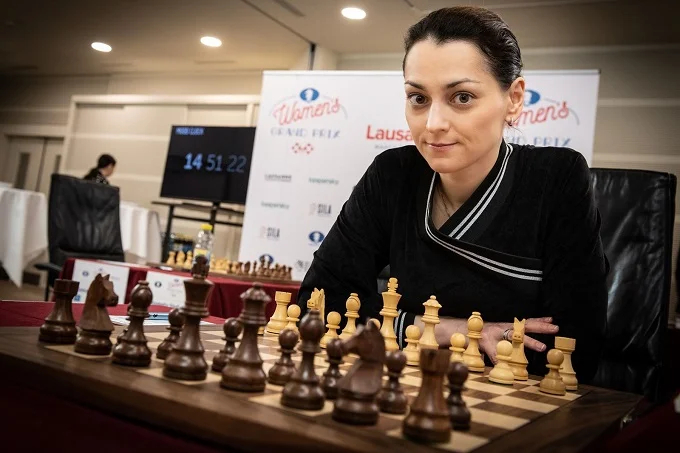
Alexandra Kosteniuk chess life
- 1994: at the age of 10, she won the U10 European Championship (Romania).
- 1996: at the age of 12, she won the U12 European Championship (Slovakia).
- 1996: at the age of 12, she won the U12 World Championship (Spain).
- 1997: at the age of 13, she became the youngest female international chess master in history.
- 1998: at the age of 14, she obtained the title of Women’s Grandmaster of Chess.
- 2000: at the age of 16, took 2nd place in the Russian Women’s Chess Championship.
- 2004: became the 10th woman to achieve the men’s grandmaster chess title.
- 2008: became world champion in women’s classical chess.
- 2013: For the first time in the history of Swiss chess, she won both the men’s and women’s national championships.
- 2014: She was decorated in Russia with the Medal of the Order of Merit of the Fatherland to contribute to the development of physical culture and sport.
- 2021: She won the Women’s World Cup and the World Rapid Chess Championship.

